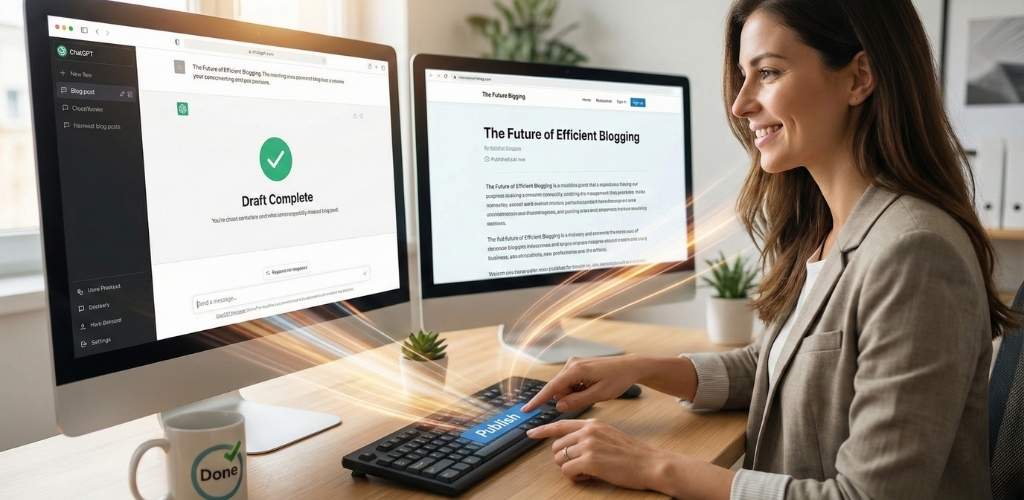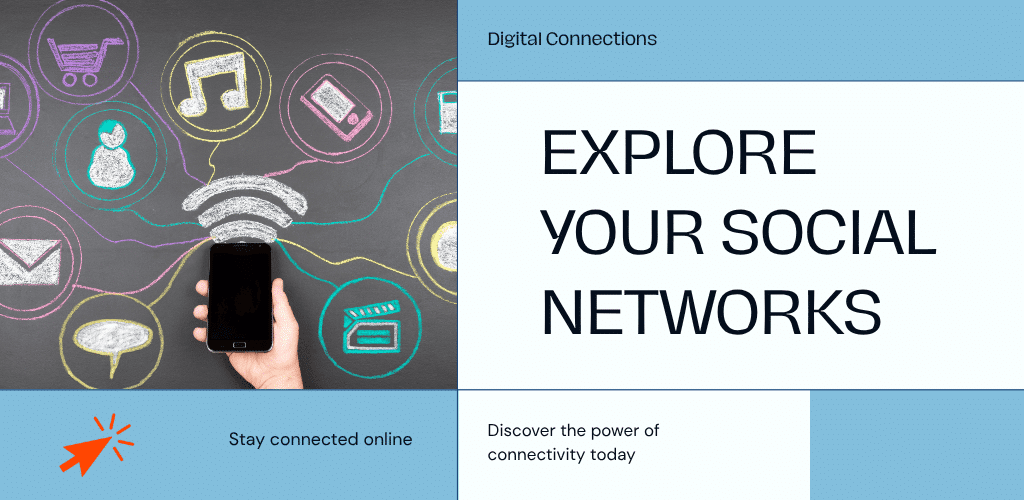Ever wonder why some websites consistently dominate the top search results while yours struggles to gain visibility? The answer often lies beyond your website’s borders, in the mysterious realm of off-page SEO – a territory where the real digital marketing battles are won and lost. While most business owners focus solely on optimizing their on-page elements, industry professionals are quietly leveraging powerful off-page strategies that they’d rather keep to themselves.
The truth is, nearly 70% of SEO success depends on activities happening outside your website. From strategic backlink acquisition to ninja-level social signals, brand mentions that fly under the radar, and digital PR tactics that can transform your authority overnight – these off-page factors heavily influence how search engines perceive your credibility. The competition is fierce, and as Google continues to refine its E-E-A-T principles (Experience, Expertise, Authority, Trustworthiness), mastering these external signals isn’t just advantageous – it’s absolutely essential for survival in today’s digital landscape.
In this comprehensive guide, we’ll pull back the curtain on the 10 most powerful off-page SEO secrets that industry experts have been guarding. From transforming your link building approach and weaponizing content marketing, to harnessing the overlooked power of brand mentions and digital PR – we’re about to reveal the exact strategies that can elevate your website from invisible to unstoppable. Get ready to implement the same tactics the pros use to dominate search rankings in 2025 and beyond.
Table of Contents
What is Off Page SEO?

Off-page SEO, also known as off-site SEO, encompasses all optimization activities conducted outside of your website to enhance its search rankings and digital presence. Unlike on-page SEO which focuses on your website’s content and structure, off-page SEO builds your site’s authority, relevance, and trustworthiness through external signals.
The difference between on-page and off-page SEO strategies
On-page SEO focuses on optimizing elements within your website, including content quality, keyword usage, meta tags, and technical performance. It’s all about making your website content relevant and accessible to both users and search engines.
Off-page SEO, in contrast, revolves around activities outside your website that enhance your search rankings. This includes:
- Acquiring quality backlinks from authoritative websites
- Increasing brand mentions across the web
- Securing positive customer reviews
- Optimizing local listings like Google My Business profiles
- Building relationships through social media and influencer outreach
According to expert surveys, off-page SEO accounts for over 50% of ranking factors, making it a crucial component of any comprehensive SEO strategy.
How off-page factors influence search rankings
Off-page factors significantly impact how search engines perceive your website’s credibility and authority:
- Backlinks: These serve as endorsements from other domains. Their effectiveness depends on:
- Quality of linking domains
- Number of unique linking domains
- Relevance to your industry or topic
- Quality of linking domains
- Brand Mentions: Even without hyperlinks, citations of your brand across the web influence rankings, though they’re less controllable than direct link building.
- Local SEO Factors: For businesses targeting specific geographic areas, elements like Google My Business optimization, consistent NAP (Name, Address, Phone) citations, and customer reviews hold considerable weight in local search results.
- Social Signals: While not direct ranking factors, social media engagement can lead to increased traffic, brand awareness, and potential backlinks over time.
E-E-A-T: The foundation of credibility and authority
Google’s E-E-A-T principles—Experience, Expertise, Authoritativeness, and Trustworthiness—form the backbone of how quality raters assess search results. Off-page SEO plays a vital role in establishing these elements:
- Experience: Demonstrating first-hand knowledge through content that gets shared and linked to by others
- Expertise: Building recognition as an industry authority through guest posting, interviews, and speaking engagements
- Authoritativeness: Earning backlinks from respected websites in your niche
- Trustworthiness: Accumulating positive reviews and testimonials that validate your credibility
Effective off-page SEO requires a comprehensive marketing approach where SEO specialists collaborate with broader marketing teams to champion these crucial factors across the organization.
Now that we’ve established what off-page SEO is and its fundamental importance, let’s dive into one of its most powerful components in the next section: “Strategic Link Building: The Cornerstone Secret.” This critical off-page technique forms the foundation of building domain authority and search visibility.
Strategic Link Building: The Cornerstone Secret

Now that we understand what off page SEO entails, it’s time to unveil the most crucial element that top SEO professionals leverage: strategic link building. While they might not openly share their methods, building a powerful backlink profile remains the cornerstone of successful off page SEO strategy.
Why Quality Backlinks Matter More Than Quantity
In 2025, Google’s algorithms have become increasingly sophisticated at identifying manipulative link patterns. The days of simply accumulating massive numbers of backlinks are long gone. Search engines now prioritize the quality of your backlinks over sheer quantity.
High-quality backlinks act as votes of confidence from other websites, signaling to search engines that your content is credible and trustworthy. These quality signals help filter relevant search results and boost your rankings. When reputable sites link to your content, they’re essentially vouching for your expertise.
Google’s PageRank algorithm, despite numerous updates, still uses backlinks as a primary ranking signal to assess webpage quality. However, the focus has shifted dramatically from counting links to evaluating their quality based on:
- Authority of the linking domain
- Relevance to your website’s topic
- Position of links within content (body content links carry more weight than footer links)
- Whether links appear editorially placed (natural) versus artificially inserted
Identifying High-Authority Websites for Valuable Backlinks
Finding the right websites to target for backlinks requires strategic research:
- Domain Authority Assessment: Focus on sites with strong domain authority and relevance to your industry. Links from thematically aligned websites carry significantly more weight than random sources.
- Content Relevancy: Prioritize websites whose content closely matches your niche. Contextual relevance dramatically increases link value.
- Link Placement: Aim for links positioned within the main body content of articles rather than sidebars or footers.
- Anchor Text Optimization: While exact-match anchors can help with rankings, overusing them appears manipulative. Maintain a natural anchor text distribution.
Tools like Semrush’s Link Building Tool can help identify potential websites for outreach based on their authority metrics and relevance to your content.
Analyzing Competitor Backlink Profiles for Untapped Opportunities
One secret technique that SEO professionals use is reverse engineering competitor backlink profiles to discover valuable link opportunities:
- Competitor Analysis: Use tools like Backlink Analytics or Backlink Gap to examine where your competitors are getting their links from.
- Identify Gap Opportunities: Look for high-authority websites linking to multiple competitors but not to you – these represent prime opportunities.
- Broken Link Mining: Find broken links on competitor sites or broken competitor links on third-party sites, then offer your content as a replacement.
- Unlinked Brand Mentions: Search for instances where competitors are mentioned without being linked, then implement the same strategy for your brand.
By analyzing your competitors’ successful link building strategies and innovating upon them, you significantly enhance your chances of earning high-quality backlinks that can dramatically improve your off page SEO performance.
With this strong foundation of strategic link building in place, we’ll next explore how content marketing can serve as a powerful off page SEO weapon to naturally attract these valuable backlinks.
Content Marketing as an Off Page SEO Weapon

Now that we’ve explored strategic link building as the cornerstone of off-page SEO, let’s dive into how content marketing can be weaponized to supercharge your off-page optimization efforts. While link building focuses on direct outreach, content marketing creates assets that naturally attract those coveted backlinks.
Creating Link-Worthy Content That Naturally Attracts Backlinks
The secret to generating backlinks organically lies in creating content formats that have proven successful in your industry. Research shows certain content types consistently outperform others when it comes to attracting links:
- Ultimate Guides: Comprehensive resources that serve as definitive references on specific topics
- Detailed Case Studies: Real-world examples with actionable insights
- Original Research and Surveys: Content featuring original data attracts 39% more backlinks and 77.2% more engagement
- Visual Assets: Infographics and other visual content that simplify complex information
To identify winning content ideas:
- Use tools like Semrush and BuzzSumo to find highly-linked pages in your niche
- Analyze high-ranking content for common formats and characteristics
- Create the “Skyscraper” version—content that’s significantly better than what currently exists
Remember that longer, visually appealing content with actionable insights tends to attract more backlinks. The “Moving Man Method” is another effective strategy, which involves finding outdated resources and offering your superior content as a replacement to sites linking to the defunct material.
Distribution Strategies to Maximize Content Reach
Creating exceptional content is only half the battle—you need strategic distribution to maximize its impact:
- Social Media Promotion: Share across all relevant platforms to establish social proof
- Email Newsletters: Distribute content to your subscriber base
- Content Syndication: Republish content on authoritative third-party sites with proper canonical tagging
- Link Roundups: Submit your content to curators of industry roundups
- Resource Page Link Building: Identify and reach out to relevant resource pages
- Collaborative Partnerships: Develop joint research or co-authored content with industry partners
When promoting content, personalization is key. Craft tailored outreach messages that explain why your content is valuable to the recipient’s audience.
Measuring Content Performance for Continuous Improvement
To optimize your content marketing for off-page SEO benefits:
- Track Backlink Acquisition: Monitor which content pieces generate the most links
- Analyze Social Sharing Metrics: Identify content that resonates with audiences
- Measure Referral Traffic: Determine which backlinks drive actual visitors
- Assess Content Formats: Compare performance of different content types
- Update Top Performers: Regularly refresh successful content to maintain relevance
Content that incorporates “ego bait” techniques—mentioning influencers or featuring their work—often generates additional backlinks as those individuals share and link to your content.
With these content marketing strategies in your off-page SEO arsenal, you’re well-positioned to attract high-quality backlinks naturally. Next, we’ll explore guest posting done right—another powerful technique that complements your content marketing efforts by helping you secure placements on authoritative websites in your industry.
Guest Posting Done Right

Now that we’ve explored content marketing as an off-page SEO weapon, let’s dive into another powerful technique that complements your content strategy: guest posting. In 2024, this approach has evolved significantly but remains a cornerstone of effective off-page SEO optimization when executed properly.
Finding Relevant Guest Posting Opportunities
The landscape of guest blogging has changed dramatically, with many publishers becoming more selective due to an influx of low-quality content. To find worthwhile opportunities:
- Use Google Search Operators with phrases like “write for us” + your niche to discover blogs accepting guest contributions
- Reverse engineer competitors’ backlinks to uncover hidden guest posting opportunities they’ve already leveraged
- Utilize topic research tools to identify relevant content ideas that align with potential host blogs
- Explore platforms like X (formerly Twitter) for real-time guest posting prospects
- Evaluate potential sites for domain authority and audience engagement before pitching
Focus on creating a tiered approach to your target sites—prioritizing high-authority domains while maintaining relationships with mid-tier blogs that are more accessible.
Creating Valuable Content That Benefits Both Audiences
The secret to successful guest posting lies in developing content that serves both the host blog and your own objectives:
- Research the host blog’s existing content to identify topics that resonate with their audience
- Craft informative, engaging content that naturally incorporates relevant keywords without compromising readability
- Include unique insights and data that position you as an expert in your field
- Tailor your content to the site’s audience—tier-one sites require exceptional, high-quality submissions
- Create an author bio that serves as a lead generation tool with a compelling call to action
Remember that your primary goal is providing value to the host’s audience while subtly establishing your expertise and authority in your niche.
Avoiding Common Pitfalls That Could Lead to Penalties
As guest posting has evolved, so have the risks associated with poor implementation:
- Avoid using guest posting solely as a “backlink factory”—Google has implemented algorithm updates targeting spammy guest posting practices
- Don’t submit identical or similar content to multiple sites, as this can trigger duplicate content penalties
- Ensure all backlinks in your guest posts are relevant and add value rather than appearing manipulative
- Follow the host’s guidelines meticulously regarding formatting, word count, and linking policies
- Maintain engagement after publication by responding to comments and promoting the content through your channels
The key is positioning yourself as a genuine contributor rather than someone simply seeking link benefits. This approach not only avoids penalties but builds lasting relationships that can provide ongoing off-page SEO benefits.
With guest posting strategies properly implemented, you’ll be ready to expand your off-page SEO efforts. Next, we’ll explore leveraging social media for off-page SEO benefits—a natural extension of your guest posting efforts that can amplify your content’s reach and impact.
Leveraging Social Media for Off Page SEO Benefits

Now that we have covered the intricacies of guest posting done right, it’s time to explore another powerful off page SEO technique: social media. While many SEO professionals focus solely on traditional link building, the savvy ones understand that social media platforms offer significant opportunities for enhancing your off page SEO strategy.
How Social Signals Indirectly Impact Search Rankings
While Google has officially stated that social signals are not direct ranking factors, there’s compelling evidence suggesting they indirectly influence search rankings. According to the State of SEO 2021 survey by Search Engine Journal, social signals are considered among the top 15 ranking factors by many SEO professionals.
Social signals—likes, shares, comments, and retweets—contribute to your SEO efforts in several ways:
- Increased Organic Traffic: When your content gets shared across social platforms, it attracts more visitors to your website, improving user behavior metrics like time on site
- Enhanced Brand Visibility: Strong social presence contributes to the authoritativeness aspect of Google’s E-E-A-T criteria
- Content Distribution: Social media serves as a critical component of Rand Fishkin’s “marketing flywheel” concept, where continuous marketing efforts build upon each other
- Backlinking Opportunities: High-quality content shared on social media can attract natural backlinks from reputable websites
Interestingly, while Google might downplay the role of social signals, Bing explicitly considers them as key ranking factors in their algorithm.
Platform-Specific Strategies for YouTube, Facebook, and LinkedIn
Each social media platform offers unique SEO benefits when leveraged correctly:
YouTube
- Ranks exceptionally well in Google search results due to Google’s ownership
- Create video content that complements your written content to capture additional search visibility
- Optimize video descriptions with relevant keywords and include links back to your website
- Offers significant visibility potential due to its massive user base
- Interlink your Facebook profile with your website for stronger brand signals
- Use schema markup to help search engines understand the connection between your social profiles and website
- Maintain consistent brand messaging to enhance recognition in Google’s Knowledge Graph
- Particularly valuable for B2B companies and professional services
- Publish authoritative content that establishes topical authority
- Share industry insights that can attract attention from other content creators
Building Engagement That Leads to Natural Link Acquisition
The ultimate goal of social media for off page SEO is to create a snowball effect where engagement leads to natural backlinks:
- Create “Link Bait” Content: Develop content specifically designed to attract backlinks, which often correlates with increased social engagement
- Strategic Outreach: Reach out to other content creators for collaboration and distribution, leveraging their networks
- Content Repurposing: Maximize reach by adapting your content for different platforms in suitable formats
- Consistent Posting Schedule: Maintain regular activity to build audience expectations and engagement
- Respond to Comments: Active engagement with your audience increases the visibility of your posts and encourages further sharing
For optimal results, consider implementing these social media tactics as part of your comprehensive off page SEO strategy. Monitor social media metrics alongside your SEO performance to identify correlation patterns specific to your industry.
With this solid foundation in leveraging social media for off page SEO benefits, next we’ll explore how influencer marketing can take your SEO domination to the next level by tapping into established audiences and authority figures in your niche.
Influencer Marketing for SEO Domination

Now that we’ve explored how social media platforms can boost your off page SEO efforts, let’s dive into a strategy that leverages these platforms even further – influencer marketing. The landscape of search is evolving dramatically, with 40% of Gen Z users now preferring TikTok over Google for product searches, and 60% of consumers using platforms like Instagram and YouTube for product discovery. This shift makes influencer marketing an essential component of any comprehensive off page SEO strategy.
Identifying and approaching relevant industry influencers
Finding the right influencers for your brand requires thorough research and strategic thinking:
- Focus on niche relevance: Look for influencers whose audience aligns with your target market. Even micro-influencers can deliver significant visibility in specialized markets.
- Evaluate authority signals: The best influencers for SEO have high engagement rates and publish content that consistently ranks well.
- Analyze content quality: Review potential influencers’ existing content to ensure it meets your brand standards and SEO objectives.
- Research platform presence: Different influencers excel on different platforms—identify where your audience is most active and find influencers who dominate those spaces.
When approaching influencers, personalize your outreach by demonstrating familiarity with their content and clearly articulating the mutual benefits of collaboration.
Creating mutually beneficial partnerships
Successful influencer partnerships for SEO domination should:
- Invest in evergreen content: Collaborate on content that remains relevant long-term, providing lasting SEO value.
- Negotiate strategic backlinks: Work with influencers to include links to specific targeted URLs on your website that need SEO enhancement.
- Encourage authentic recommendations: With 89% of consumers trusting influencer endorsements as much as personal recommendations, authenticity drives both engagement and SEO benefits.
- Diversify content formats: Create various types of content with influencers to capture different search intents and keywords.
- Foster long-term relationships: Ongoing collaborations yield more substantial SEO results than one-off partnerships.
Measuring the SEO impact of influencer collaborations
To effectively track how influencer marketing impacts your SEO performance:
- Monitor backlink quality: Use SEO tools to track new backlinks generated through influencer collaborations.
- Track branded search volume: Successful influencer partnerships often lead to increased branded searches, a positive signal to search engines.
- Analyze traffic sources: Use Google Analytics to identify referral traffic from influencer content and measure engagement metrics like bounce rate and time on site.
- Observe keyword ranking improvements: Track positions for target keywords before and after influencer campaigns.
- Measure user-generated content increases: Effective influencer campaigns often spark additional content creation from followers, expanding your digital footprint.
Real-time examples demonstrate the power of this approach. When tech influencer Marques Brownlee reviewed Sonos headphones, it created immediate search spikes that boosted the brand’s visibility. Similarly, AI-powered search engines like ChatGPT and Gemini now incorporate influencer-generated content, further amplifying its reach and SEO impact.
As we transition to exploring brand mentions and citations in our next section, remember that influencer marketing provides a foundation for these valuable off page SEO signals. The authentic relationships influencers build with their audiences create natural opportunities for your brand to be mentioned, cited, and discussed across the web—a perfect segue into understanding how to leverage these often overlooked SEO assets.
Brand Mentions and Citations: The Overlooked Secret

While influencer marketing can significantly boost your off page SEO efforts through powerful endorsements, there’s another hidden gem that many SEO professionals don’t openly discuss: brand mentions and citations. This often-overlooked strategy can be just as impactful for your off page SEO strategy.
Unlinked Mentions and Their SEO Value
Brand mentions, particularly unlin
ked ones, have grown tremendously in SEO importance. Historically, search engines like Google focused primarily on backlinks, but algorithms have evolved to recognize brand mentions as signals of relevance and authority. These unlinked mentions—instances where your brand is cited without a hyperlink—are increasingly valuable indicators of your brand’s popularity online.
Search engines now use sophisticated sentiment analysis to gauge how your brand is perceived, evaluating not just the mention itself, but also:
- The context in which your brand appears
- The sentiment (positive, neutral, or negative)
- The authority and relevance of the mentioning source
In some cases, quality brand mentions can even surpass traditional backlinks in value, particularly when they come from high-authority sources like media coverage, influencer testimonials, or user reviews.
Strategies to Increase Brand Mentions Across the Web
To leverage brand mentions for off page SEO optimization, implement these proven techniques:
- Content Marketing: Create high-quality, shareable content that naturally encourages others to reference your brand
- Digital PR: Secure feature placements in reputable publications and niche blogs that align with your industry
- Listicle Features: Position your brand to be included in “best of” or resource lists
- Audience Engagement: Foster active conversations about your brand on social media platforms like Twitter, Facebook, and Instagram
- Influencer Collaborations: Partner with industry voices who will naturally mention your brand in their content
Consistency is key—monitor your mentions using tools like Google Alerts, Mention, or Brand24 to track volume, sentiment, and source authority.
Converting Unlinked Mentions into Valuable Backlinks
The ultimate off page SEO technique is transforming unlinked mentions into backlinks. When you discover your brand mentioned without a link:
- Identify the mention using brand monitoring tools
- Assess the quality and relevance of the mentioning site
- Contact the content creator or site owner with a friendly, personalized outreach email
- Express appreciation for the mention
- Politely request they consider adding a hyperlink to your website
This approach not only strengthens your backlink profile but also builds relationships with content creators who may become regular sources of mentions and links.
With brand mentions becoming increasingly important in SEO, particularly with the rise of AI and voice search, this overlooked strategy deserves a prominent place in your off page SEO checklist.
Now that we’ve explored how to leverage brand mentions, let’s examine another powerful yet often underutilized off page SEO technique: harnessing the power of online reviews.
Harnessing the Power of Online Reviews

Now that we’ve explored how brand mentions and citations can boost your off-page SEO efforts, let’s dive into another powerful yet often underutilized strategy: online reviews.
How reviews impact search visibility and rankings
Online reviews have become a critical component of off-page SEO optimization. With approximately 1.2 trillion searches happening per year, search engines need reliable signals to determine which businesses deserve top rankings. Reviews serve as powerful trust indicators that Google and other search engines use to evaluate your business’s credibility and relevance.
In fact, Google has increasingly prioritized reputation management in its algorithms. When customers leave positive reviews about your business, they’re essentially creating user-generated content that:
- Signals legitimacy and trustworthiness to search engines
- Demonstrates active customer engagement
- Provides fresh content related to your business
- Reinforces relevance for specific keywords
The data speaks for itself: 93% of consumers rely on online reviews when making purchasing decisions. This consumer behavior hasn’t gone unnoticed by search engines, which now factor review quality and quantity into their ranking algorithms. Positive reviews can significantly boost your ranking for relevant keywords, while negative reviews can have the opposite effect.
Platforms that matter most for your industry
While Google Reviews stands as the universal platform that matters for virtually every business, different industries may find more value in specialized review platforms. The key is identifying which platforms your potential customers frequent before making purchasing decisions.
Google’s algorithm pays attention to reviews across the web, not just on their own platform. Third-party review sites often carry significant weight in search algorithms and can influence your overall off-page SEO strategy.
Ethical strategies to generate positive reviews
The emphasis here must be on ethical approaches – attempting to manipulate reviews can result in penalties that devastate your off-page SEO efforts. Consider these legitimate strategies:
- Deliver exceptional service worth reviewing
- Create simple review processes with minimal friction
- Follow up with satisfied customers at the right moment
- Respond thoughtfully to both positive and negative reviews
- Incorporate review generation into your customer experience workflow
Businesses using dedicated customer experience software like Birdeye have reported substantial improvements in their review profiles, leading to better visibility in search results, improved ratings, and ultimately revenue growth.
With most users rarely venturing beyond the first page of search results, and organic search driving a significant proportion of web traffic, actively managing your online reviews becomes an essential element of your off-page SEO strategy.
With this understanding of how online reviews influence search visibility, let’s now examine how Local SEO Off-Page Techniques can further enhance your digital presence and help you dominate local search results.
Local SEO Off Page Techniques

Now that we have covered how online reviews can significantly boost your SEO efforts by enhancing your site’s E-A-T (Experience, Expertise, Authoritativeness, and Trustworthiness), let’s explore how local businesses can leverage off-page SEO techniques to dominate their local search rankings.
A. Optimizing your Google Business Profile for maximum impact
Your Google Business Profile serves as a critical off-page SEO asset for local businesses. In 2025, it remains one of the most powerful tools for enhancing local visibility. To maximize its impact:
- Ensure complete and accurate business information, including address, phone number, and operating hours
- Regularly update your profile with fresh photos and posts
- Respond promptly to all customer reviews (both positive and negative)
- Add relevant business categories and attributes that help searchers find your services
- Incorporate local keywords naturally in your business description
A well-optimized Google Business Profile significantly increases your chances of appearing in the local pack, driving targeted traffic to your physical location.
B. Building local citations and directory listings
Local citations are mentions of your business across the web that include your name, address, and phone number (NAP). According to our reference content, optimizing local citations is crucial for better local SEO performance. Here’s how to approach this:
- Focus on consistency across all platforms—ensure your NAP information is identical everywhere
- Prioritize quality over quantity by targeting reputable, industry-specific directories
- Claim and verify listings on major platforms like Yelp, Yellow Pages, and industry-specific directories
- Include rich information such as business descriptions, images, and service details
- Monitor citations regularly to correct inaccuracies that could harm your local rankings
These citations serve as trust signals to search engines, reinforcing your business’s legitimacy and local relevance.
C. Community engagement strategies for local businesses
Community engagement extends beyond your physical location and forms a crucial component of your off-page SEO strategy:
- Participate actively in local online forums and social media groups
- Sponsor local events and ensure they’re mentioned on community websites
- Collaborate with other local businesses for cross-promotion opportunities
- Create locally-focused content that addresses community interests and concerns
- Engage with local influencers who can amplify your brand within the community
By implementing these community engagement strategies, you’ll not only build valuable backlinks but also increase brand mentions and citations—both critical off-page SEO factors that contribute to your local authority.
With these local SEO off-page techniques in your arsenal, you’re well-positioned to enhance your local visibility. Next, we’ll explore Digital PR as the ultimate off-page SEO secret, where you’ll discover how to leverage press releases, media relationships, and brand storytelling to dramatically expand your online footprint and authority.
Digital PR: The Ultimate Off Page SEO Secret

Now that we’ve explored local SEO off-page techniques, it’s time to unveil what many consider the most powerful secret weapon in off-page SEO: Digital PR. Unlike traditional public relations, digital PR integrates SEO strategies to enhance your brand’s online visibility through backlink acquisition, digital media coverage, and strategic content creation.
Digital PR significantly impacts your off-page SEO strategy by boosting search rankings through authoritative backlinks, raising domain authority, and driving valuable referral traffic. Perhaps most importantly, it reinforces Google’s emphasis on Expertise, Authority, and Trustworthiness (E-A-T), which has become increasingly crucial for search rankings.
A. Creating Newsworthy Content That Journalists Want to Cover
The foundation of successful digital PR lies in producing content that naturally attracts media attention. This includes:
- Original research and data-driven stories: Journalists love exclusive data and fresh insights they can’t find elsewhere
- Trend reports: Identifying and analyzing emerging patterns in your industry
- Shareable visual content: Infographics that simplify complex information
- Long-form, value-rich content: Comprehensive resources that establish your expertise
Remember that promotional content rarely succeeds in digital PR. Instead, focus on creating genuinely newsworthy pieces that solve problems or provide unique perspectives for your target audience.
B. Building Relationships with Media Outlets and Publishers
Digital PR is fundamentally about relationships. Here’s how to build them effectively:
- Research your media targets thoroughly: Understand what specific journalists and outlets cover before reaching out
- Personalize your outreach: Generic pitches get ignored; tailored ones get responses
- Engage with journalists’ content: Comment on their articles and share their work before asking for coverage
- Maintain long-term connections: Digital PR isn’t a one-off campaign but an ongoing relationship-building process
By actively engaging with influencers, journalists, and bloggers in your industry, you increase the likelihood of earning valuable backlinks and mentions that boost your off-page SEO performance.
C. Measuring and Maximizing the ROI of Digital PR Campaigns
To ensure your digital PR efforts deliver maximum SEO benefits:
- Track media coverage using monitoring tools
- Measure backlinks earned from each campaign
- Monitor organic traffic increases to pages mentioned in PR coverage
- Analyze keyword ranking improvements following media mentions
- Calculate referral traffic from media outlets
When measuring success, look beyond vanity metrics like “potential impressions” and focus on concrete SEO outcomes like domain authority growth and organic search position improvements.
Common pitfalls to avoid include creating overly promotional pitches, neglecting relationship-building, focusing on low-quality publications, inadequate follow-up, and failing to integrate your PR with your overall off-page SEO strategy.
With digital PR properly implemented as part of your off-page SEO arsenal, you’ll be well-positioned to outperform competitors who rely solely on traditional link building tactics. Next, we’ll explore the essential tools for off-page SEO optimization that can help you manage and scale these strategies effectively.
Tools for Off Page SEO Optimization
Now that we’ve explored how Digital PR can be a game-changing off page SEO secret, let’s examine the essential tools that professionals use to implement and track these strategies effectively.
All-in-One SEO Platforms
Search Atlas stands out as a comprehensive tool that combines multiple off page SEO functions in one platform. It offers robust backlink analysis, outreach capabilities, and even AI-assisted HARO pitch creation for digital PR campaigns. This all-in-one approach saves time and resources while maximizing your off page SEO impact.
Backlink Analysis Tools
Ahrefs Backlink Checker (starting at $99/month) provides detailed insights into your backlink profile and competitor analysis. This powerful tool helps you identify link-building opportunities and monitor your domain authority growth.
Majestic and Moz Pro offer similar functionality with their own unique metrics for measuring domain authority and trust.
Outreach and Relationship Building
BuzzStream (starting at $24 per month) specializes in creating personalized outreach emails, making it invaluable for public relations and link-building campaigns.
Pitchbox and Respona provide automation features for outreach, helping you scale your guest posting and influencer marketing efforts.
Content Discovery and Analysis
BuzzSumo helps identify trending content and influential figures in your industry, supporting your content marketing and influencer collaboration strategies.
SEOquake is a free browser plug-in that assesses a site’s SEO health and provides insights into competitors’ backlinks, making it useful for guest blogging research.
Local SEO Tools
Moz Local Listing Score (starting at $99/month) ensures your business listings are accurate across directories, enhancing your local off page SEO efforts.
Semrush Listing Management (starting at $108/month) streamlines the process of managing local citations and responding to reviews.
Link Health Monitoring
Google Search Console, a free tool, allows you to monitor site rankings and disavow harmful links to maintain site integrity.
SEO Checker offers quick backlink health analysis to ensure your off page SEO strategy isn’t compromised by toxic links.
The effectiveness of these tools depends on their ability to support multiple off page SEO strategies, including press release syndication, social media engagement, guest blogging, and influencer marketing. Tools with AI capabilities are particularly valuable as they automate repetitive tasks, enhancing accuracy and efficiency.
With these tools at your disposal, implementing the off page SEO techniques we’ve discussed becomes more manageable and measurable. As we transition to our next section on “Myths vs Facts,” you’ll learn how to separate genuine off page SEO strategies from common misconceptions, ensuring your optimization efforts remain focused on what truly works.
Myths vs Facts
Now that we have covered various tools to optimize your off-page SEO efforts, it’s crucial to separate myths from facts in this field. Off-page SEO is riddled with misconceptions that can lead your strategy astray if not properly addressed.
Myth: Off-Page SEO is Just About Building Backlinks
Fact: While backlinks are a cornerstone of off-page SEO, they’re just one component. A comprehensive off-page strategy encompasses content marketing, social media engagement, brand mentions, and digital PR. Focusing solely on link building without considering quality and relevance can be detrimental to your rankings.
Myth: Social Media Has No Impact on SEO
Fact: Although there’s no direct correlation between social signals and rankings, a strong social media presence drives traffic, increases brand visibility, and creates opportunities for backlinks. Social platforms can significantly amplify your content’s reach, indirectly supporting your SEO efforts.
Myth: More Content Pages Equal Better SEO
Fact: Quality trumps quantity. Publishing irrelevant or spammy content can actually harm your SEO. Focus on creating valuable, authoritative content that naturally attracts backlinks and engagement instead of churning out low-quality pages.
Myth: Guaranteed SEO Results
Fact: Be wary of any agency promising guaranteed rankings. SEO success is unpredictable and depends on numerous factors, including algorithm updates, competition, and industry trends. Sustainable results require strategic planning, consistent effort, and patience.
Myth: Off-Page SEO Delivers Immediate Results
Fact: Off-page SEO is a long-term investment. Building authority, earning quality backlinks, and establishing brand presence takes time. Don’t expect overnight success—commit to consistent effort and continuous optimization.
Myth: Guest Posting is No Longer Effective
Fact: Strategic guest posting remains valuable for off-page SEO when done correctly. Focus on quality publications relevant to your industry, providing genuinely useful content rather than thinly disguised link-building attempts.
Myth: All Backlinks Are Beneficial
Fact: Toxic backlinks from spammy or irrelevant sites can trigger penalties. The quality, relevance, and authority of linking domains matter more than quantity. A few high-quality backlinks from trusted sources outweigh numerous low-quality ones.
Myth: Local Businesses Don’t Need Off-Page SEO
Fact: Local businesses can benefit significantly from off-page SEO techniques, especially through local citations, reviews, and geographically relevant backlinks. Claiming and optimizing your Google My Business listing is essential but should be part of a broader strategy.
With these myths debunked, you can approach your off-page SEO strategy with clarity and focus. In our next section, we’ll address frequently asked questions about off-page SEO to further enhance your understanding and implementation of these powerful techniques.
FAQ’s
Now that we’ve debunked common myths about off-page SEO, let’s address some frequently asked questions to further clarify this important aspect of search engine optimization.
What is off-page SEO and why is it important?
Off-page SEO encompasses all activities performed outside your website aimed at improving your search engine rankings. It’s crucial because it helps enhance your website’s visibility, drives organic traffic, and establishes brand credibility. Unlike on-page SEO, off-page strategies focus on external signals that tell search engines your site is trustworthy and valuable.
What are the most effective off-page SEO techniques?
Based on expert insights, the most effective off-page SEO techniques include:
- High-quality backlink acquisition
- Strategic content marketing
- Guest blogging on reputable sites
- Active social media marketing
- Local citations (especially for businesses with physical locations)
- Forum marketing and community engagement
What’s the difference between do-follow and no-follow backlinks?
Do-follow links pass SEO value (also called “link juice”) from one site to another, directly influencing your search rankings. No-follow links contain an HTML attribute that tells search engines not to count them for ranking purposes. However, a balanced profile of both types is considered natural and beneficial for an overall off-page SEO strategy.
How long does it take to see results from off-page SEO efforts?
Off-page SEO is typically time-consuming and requires patience. Building relationships, earning quality backlinks, and establishing authority don’t happen overnight. Consistent effort over months is usually needed before significant improvements in rankings become visible.
How can I monitor the success of my off-page SEO strategy?
Key metrics to track include:
- Backlink quality and quantity
- Domain authority
- Social media engagement
- Brand mentions across the web
- Referral traffic from external sources
Is local SEO part of off-page optimization?
Yes, local SEO includes several off-page techniques. For businesses serving specific geographic areas, local citations, Google Business Profile optimization, and location-specific backlinks are critical components of an effective off-page SEO strategy.
Should off-page SEO strategies differ for blogs versus e-commerce sites?
Absolutely. Blogs typically benefit more from community engagement, guest posting, and social sharing, while e-commerce sites might focus more on product reviews, influencer partnerships, and marketplace presence. Both require tailored approaches to achieve optimal results.
Infographic Off Page SEO Factors
Conclusion
Off-Page SEO: Your Secret Weapon for Digital Success
The landscape of SEO extends far beyond your website’s boundaries, and these ten off-page secrets reveal just how powerful external optimization can be. From strategic link building that establishes your site’s authority to leveraging social media and influencer partnerships that amplify your reach, these techniques represent the difference between average and exceptional online visibility. Brand mentions, online reviews, local SEO techniques, and digital PR aren’t just supplementary strategies—they’re essential components of a comprehensive off-page approach that can dramatically improve your search rankings.
As you implement these off-page SEO secrets, remember that quality consistently trumps quantity. A single high-authority backlink often delivers more value than dozens of low-quality ones. The digital marketing landscape continues to evolve, but the fundamentals of building trust, authority, and relevance remain constant. Start by incorporating one or two of these strategies into your existing SEO efforts, measure the results, and gradually expand your off-page arsenal. Your competitors may not want you to know these secrets, but now that you do, you’re well-equipped to outrank and outperform them in the increasingly competitive digital arena.








